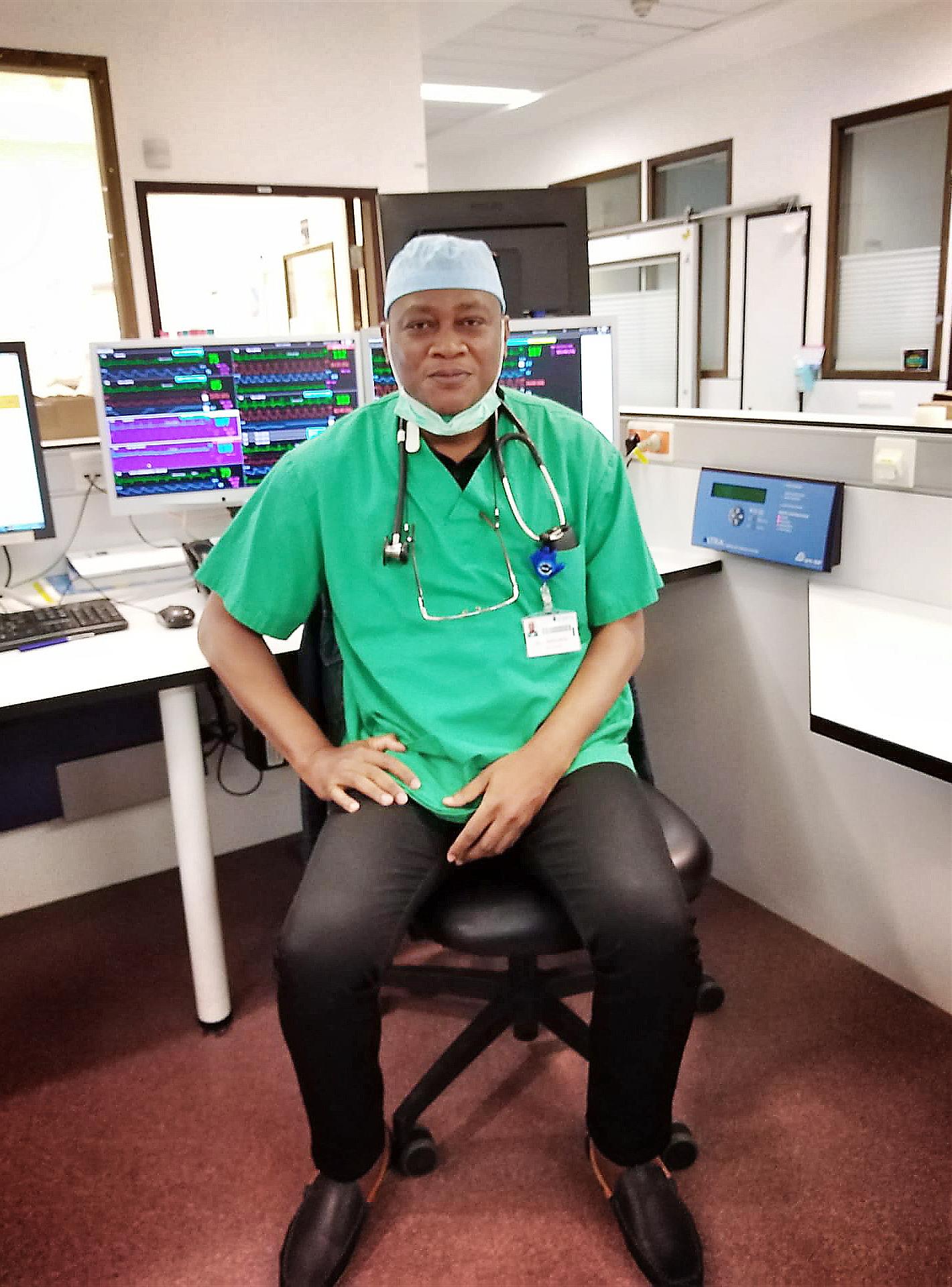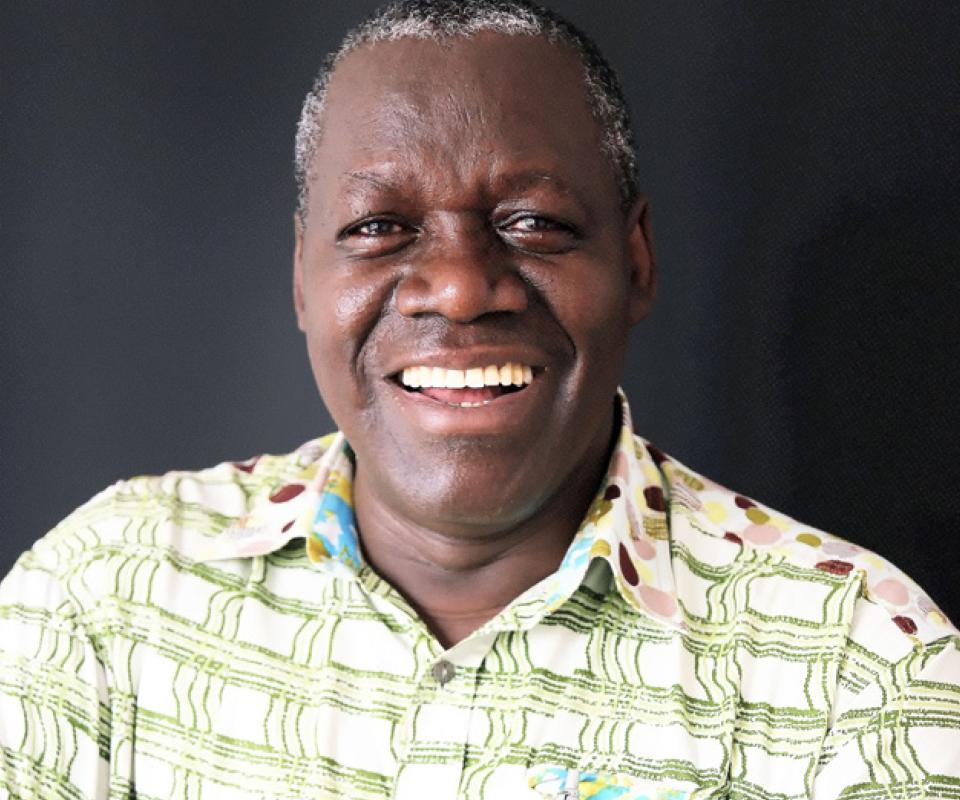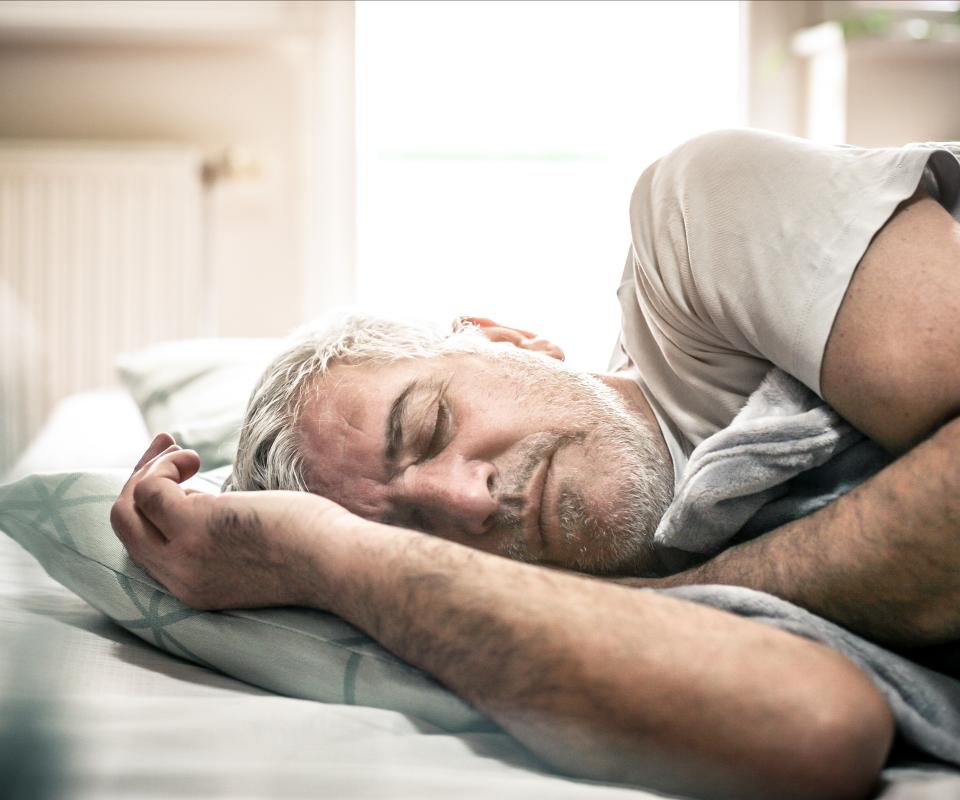
We have to put all our bets on prevention
Dr Ernest Ahounou had planned to complete a ‘simple’ internship in resuscitation in intensive care at the Cliniques Universitaires Saint-Luc, thanks to support provided by the Baele-Rémion Fund, managed by the King Baudouin Foundation. But COVID-19 turned both his plans and his internship objectives upside down. Now Dr Ahounou intends to use his experience in the service of his own country, Benin, and other countries in Africa.
When he began his internship in the intensive care department of the Cliniques Universitaires Saint-Luc in January 2020, Ernest Ahounou imagined he would widen his practical knowledge in neuro-vascular and metabolic resuscitation. As a doctor and researcher in the Science Faculty of the University of Abomey-Calavi in Cotonou, Republic of Benin, he is one of the beneficiaries of support grants awarded by the Baele-Rémion Fund. The Fund supports further professional development of African intensive care anaesthetists by financing internships for them in a Belgian hospital. And, in this current health crisis, the Fund also supports former grantees (4 doctors in Benin, 4 in Burkina Faso, 4 in Niger and 3 in Guinea), by supporting the health structures where they work and through the acquisition and production of personal protective equipment such as masks and hydro-alcoholic gel.
A blow to his morale
Dr Ahounou’s internship had barely begun when COVID-19 struck Belgium, playing havoc not only with daily work in the intensive care unit to which he had been assigned, but also with all of his own plans. Should he go home or stay in Belgium to acquire knowledge and experience about preventing and fighting coronavirus? “I opted for the second solution”, he explained. “Benin already has dozens of proven cases of COVID-19. The situation could, of course, get worse. And in this case I would like to put the experience I have gained in Belgium at the service of Africa. Africa has to prepare and anticipate the care of patients who have serious symptoms.”
Faced with such unexpected events, Dr Ahounou has of course lived through some difficult moments: “I was really shocked and of course I feared a bit for my own life. I felt rather lonely, so far away from my family. However, thanks to today’s communication techniques, I have managed to stay in touch with the family. My brothers have also given me a lot of support. Today my morale is good.”
An unhoped-for experience
The objectives of the internship were re-defined and oriented towards managing the pandemic. This Benin intern – under the supervision of Pierre-François Laterre, Head of the Intensive Care Department at Saint Luc – follows the doctors’ rounds and takes part in staff meetings and discussions on patient care. “I’m learning a lot about strategy, how to organize human resources and the logistics required to better deal with this health crisis. The organisation of the medical and paramedical staff’s work has to be meticulously planned, you have to ensure there is a sufficient number of people on deck and you have to adapt the number of beds in function of the pandemic’s development. You also have to constantly monitor the therapeutic care, treatments and respiratory support. Nothing can be neglected.”
Placing all our bets on prevention
However, whilst amassing a wealth of experience on the care of COVID-19 patients, Ernest Ahounou also forged his own convictions: if Benin or other countries in Africa were to be gravely affected by the pandemic, these countries would find themselves in an extremely complicated situation. “In rich countries, the care of COVID-19 patients in intensive care is costly and gives a relatively disappointing result since the mortality rate is high. In Africa, this would be dramatic.” And the young doctor adds “Where I come from, there is no social security or medical cover: health care and medicines are at the patient’s charge and people are incapable of meeting such costs. And this is without speaking about intensive care: without public intervention by the political authorities, it is doomed to fail. Ernest Ahounou intends to raise the awareness of African governments regarding two aspects that are essential in his eyes: firstly the importance of prevention and the investments that this involves and secondly the need to subsidise the resuscitation care of patients affected by coronavirus: “Africa must concentrate its resources on prevention – notably hygiene and the wearing of masks – and ensure the protection of the few carers we have by making available to them the appropriate personal protective equipment.”
Professor Baele, the founder of the Baele-Rémion Fund, has further created a platform on which anaesthetists from 16 African countries can exchange information and share scientific articles and documents. At the moment, COVID-19 is the main attraction. Ernest Ahounou and a number of his colleagues who, like him, have had an opportunity to be trained in the procedures and protocols for COVID-19, post information about the care of patients, stimulating recovery through intubation and documents that can be of use in managing the pandemic.
“I’m learning a lot about strategy and organisation so as to be better able to deal with the health crisis.”
“I know that, if the pandemic were to seriously affect Africa, I could be useful on several levels” concluded Ernest Ahounou. “But in order that this doesn’t happen, I shall do everything I possibly can to convince the governments of the absolute necessity to go all out on prevention. This is the essential thing, I’m absolutely convinced.”
The Baele-Rémion Fund
Created within the King Baudouin Foundation by Professor Philippe Baele, the Baele-Rémion Fund supports on-going professional development of intensive care anaesthetists and other key actors working in transfusion in developing countries, mainly in Africa and Latin America. The Fund does this by awarding grants that enable selected candidates to gain further useful training by exercising or further developing their professions through, for example, short stays in a Belgian university or hospital. Since 2014, the Baele-Rémion Fund has financed 30 grants amounting to a total of over 160,000 euros.
Other stories
Inspiring engagement!

The experience that led to the role of liaison officer in Africa
Europe and International
"You need integrity and curiosity."

‘South-South’ cooperation to provide better help for street children
Europe and International
“We are proposing a programme to humanise the street.”

Soft sound improves sleep quality in dementia
"On the one hand, poor sleep leads to additional problems for patients, which also affects their caregivers, often resulting in institutionalisation. On the other hand, we wonder whether poor-quality deep sleep could worsen the disease or perhaps even contribute to its development."